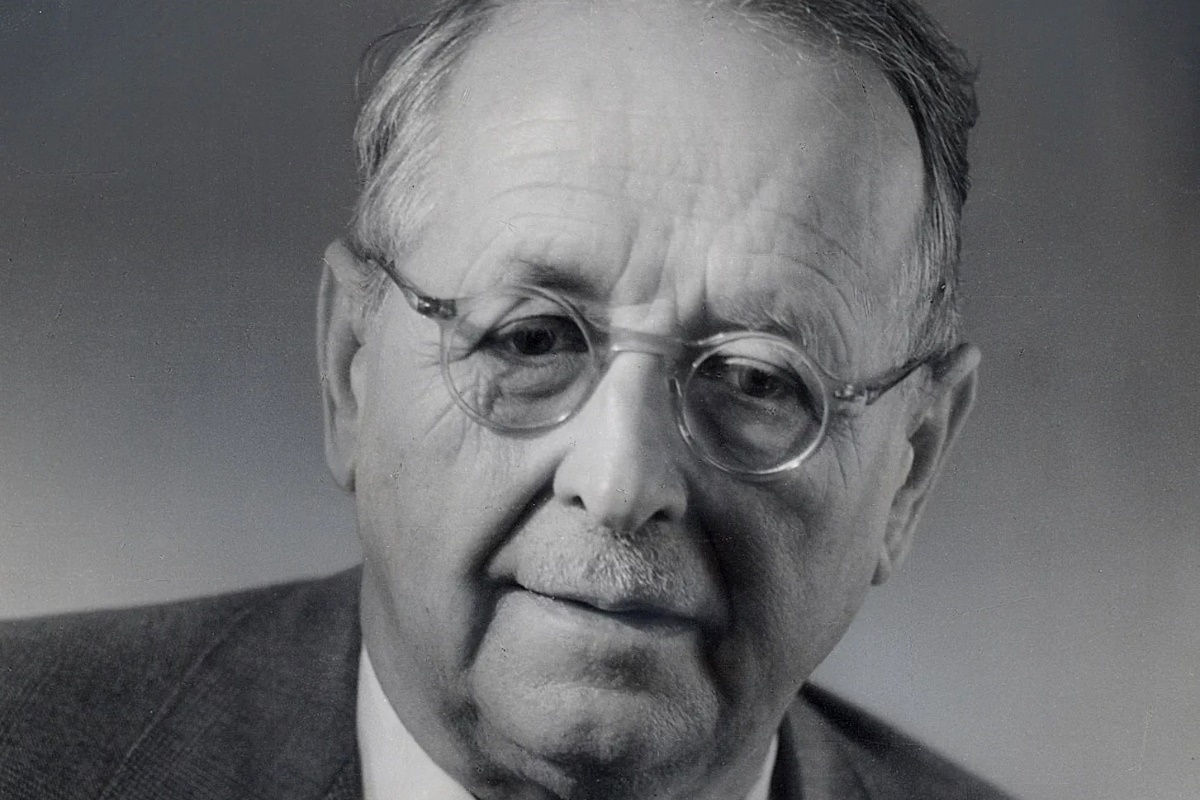
Hermann Weyl, a prominent mathematician and physicist, was an extraordinary individual whose contributions to the field of science have had a significant impact on our understanding of the universe. His groundbreaking work in mathematics, particularly in the areas of differential geometry and quantum mechanics, revolutionized the way we perceive the fundamental laws of nature.
In this article, we will delve into the fascinating life of Hermann Weyl and unveil 12 mind-blowing facts about his work and achievements. From his pioneering concepts in mathematical physics to his philosophical musings on the nature of reality, Weyl’s intellectual journey will inspire and captivate you.
Join us as we explore the multifaceted genius of Hermann Weyl and discover why he remains an influential figure in the realm of science to this day.
Key Takeaways:
- Hermann Weyl was a brilliant mathematician and physicist who revolutionized our understanding of space, time, and quantum mechanics, leaving an enduring legacy for future generations to explore.
- Weyl’s groundbreaking work in gauge theory, differential geometry, and quantum mechanics continues to inspire mathematicians and physicists worldwide, shaping our understanding of the universe and the fundamental forces within it.
The Mathematical Genius
Hermann Weyl, born on November 9, 1885, was a renowned German mathematician and physicist. His contributions to various branches of mathematics and theoretical physics have left an indelible mark on the scientific community.
The Father of Gauge Theory
Weyl is often referred to as the “Father of Gauge Theory” due to his groundbreaking work in the field. Gauge theory has become an essential framework in understanding fundamental interactions, such as electromagnetism and the strong and weak nuclear forces.
Revolutionizing Geometry
Weyl made significant contributions to the field of differential geometry, particularly in the development of the concept of curvature. His work laid the foundation for many later advancements in this branch of mathematics.
Linking Space and Time
Weyl’s theories in general relativity brought together the concepts of space and time, providing a deeper understanding of the nature of the universe. His ideas influenced the work of renowned physicist Albert Einstein.
Quantum Mechanics and Group Theory
Weyl played a crucial role in the development of quantum mechanics, especially in his application of group theory. His insights into the symmetries of mathematical structures enabled a better understanding of the quantum world.
The Weyl Equation
One of Weyl’s most significant contributions to physics was the Weyl equation, which describes massless particles. This equation has applications in high-energy physics and quantum field theory.
Academic Recognition
Weyl was a highly esteemed academic figure and held prestigious positions at renowned institutions. He was a professor at the University of Göttingen and the Institute for Advanced Study in Princeton.
Deep Philosophical Thoughts
Besides his mathematical prowess, Weyl delved into philosophical questions and was known for his contemplative writings on the relationship between mathematics, science, and philosophy.
Influencing Future Mathematicians
Weyl’s work continues to inspire countless mathematicians and physicists around the globe. His innovative ideas and groundbreaking theories serve as a guiding light for future generations.
Published Legacy
Throughout his career, Weyl published numerous influential papers and books that have become seminal works in the field of mathematics and physics. His writings continue to be studied and referenced by scholars today.
Recognitions and Awards
Weyl’s significant contributions were recognized with prestigious awards such as the Max Planck Medal, the Royal Society’s Sylvester Medal, and the Albert Einstein Medal.
Legacy of Hermann Weyl
The legacy of Hermann Weyl is a testament to his profound impact on the fields of mathematics and theoretical physics. His ideas and theories continue to shape our understanding of the universe, serving as reminders of his enduring brilliance.
Conclusion
In conclusion, Hermann Weyl was a remarkable figure in the field of mathematics and physics. His contributions have had a profound impact on our understanding of various mathematical concepts and their applications in the physical world. From his groundbreaking work in quantum mechanics to his influential publications on symmetry, Weyl’s ideas continue to shape the way we approach these subjects today.Weyl’s deep philosophical insights and his ability to bridge the gap between different branches of mathematics and physics make him a truly unique figure in the scientific community. His legacy lives on through the numerous concepts and theorems that bear his name, such as Weyl’s theorem, Weyl’s quantization, and Weyl’s curvature tensor.Whether it’s his work on mathematical physics, his fascination with symmetry, or his contributions to the theory of relativity, Hermann Weyl’s mind-blowing facts will continue to inspire generations of mathematicians and physicists for years to come.
FAQs
Q: Who was Hermann Weyl?
A: Hermann Weyl was a renowned mathematician and physicist who made significant contributions to various fields, including quantum mechanics, symmetry, and the theory of relativity.
Q: What are some of Hermann Weyl’s notable contributions?
A: Weyl made several significant contributions, including the Weyl quantization, which relates classical mechanics to quantum mechanics. He also developed the concept of gauge invariance and made important contributions to the understanding of symmetry in physics.
Q: How did Hermann Weyl contribute to the theory of relativity?
A: Weyl introduced the concept of the Weyl curvature tensor, which plays a critical role in the mathematical formulation of general relativity. His work on the theory of relativity helped further our understanding of the nature of space, time, and gravity.
Q: What is Weyl’s theorem?
A: Weyl’s theorem is a fundamental result in differential geometry. It states that any conformal transformation of a Riemannian manifold can be represented as a combination of a change in metric and a local rescaling of the metric.
Q: How has Hermann Weyl’s work influenced modern mathematics and physics?
A: Weyl’s contributions have had a significant impact on modern mathematics and physics. His ideas continue to be studied and applied in various areas, such as quantum field theory, gauge theories, and the study of symmetries in mathematical physics.
Hermann Weyl's groundbreaking work in mathematics and physics continues to inspire researchers today. His equidistribution theorem, a cornerstone of modern number theory, provides profound insights into the distribution of sequences. Exploring this theorem further reveals its far-reaching implications and applications across various fields. Weyl's legacy extends beyond his individual contributions, as his ideas have shaped the course of scientific thought for generations. Delving deeper into his life and work offers a captivating glimpse into the mind of a true genius who left an indelible mark on the world of mathematics and beyond.
Was this page helpful?
Our commitment to delivering trustworthy and engaging content is at the heart of what we do. Each fact on our site is contributed by real users like you, bringing a wealth of diverse insights and information. To ensure the highest standards of accuracy and reliability, our dedicated editors meticulously review each submission. This process guarantees that the facts we share are not only fascinating but also credible. Trust in our commitment to quality and authenticity as you explore and learn with us.


